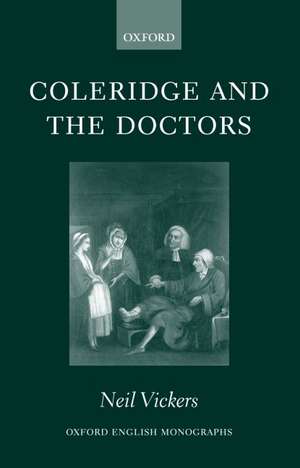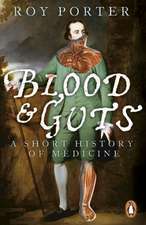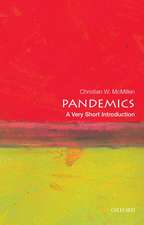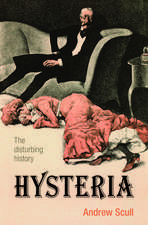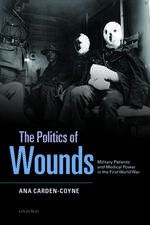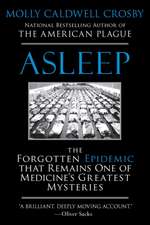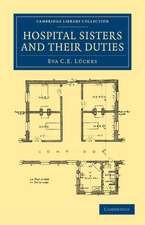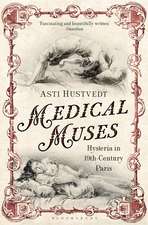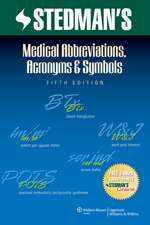Coleridge and the Doctors: 1795-1806: Oxford English Monographs
Autor Neil Vickersen Limba Engleză Hardback – 17 iun 2004
Din seria Oxford English Monographs
- 12%
 Preț: 492.54 lei
Preț: 492.54 lei - 28%
 Preț: 472.45 lei
Preț: 472.45 lei - 28%
 Preț: 487.35 lei
Preț: 487.35 lei - 23%
 Preț: 473.01 lei
Preț: 473.01 lei - 24%
 Preț: 498.33 lei
Preț: 498.33 lei - 21%
 Preț: 528.16 lei
Preț: 528.16 lei - 28%
 Preț: 497.29 lei
Preț: 497.29 lei - 28%
 Preț: 406.14 lei
Preț: 406.14 lei - 16%
 Preț: 473.94 lei
Preț: 473.94 lei - 28%
 Preț: 473.47 lei
Preț: 473.47 lei - 26%
 Preț: 527.79 lei
Preț: 527.79 lei - 22%
 Preț: 497.63 lei
Preț: 497.63 lei - 30%
 Preț: 516.27 lei
Preț: 516.27 lei - 28%
 Preț: 437.84 lei
Preț: 437.84 lei - 26%
 Preț: 515.71 lei
Preț: 515.71 lei - 28%
 Preț: 498.06 lei
Preț: 498.06 lei - 12%
 Preț: 494.84 lei
Preț: 494.84 lei - 27%
 Preț: 407.74 lei
Preț: 407.74 lei - 28%
 Preț: 472.09 lei
Preț: 472.09 lei - 16%
 Preț: 472.24 lei
Preț: 472.24 lei - 28%
 Preț: 473.16 lei
Preț: 473.16 lei - 25%
 Preț: 490.28 lei
Preț: 490.28 lei - 25%
 Preț: 521.94 lei
Preț: 521.94 lei - 30%
 Preț: 505.56 lei
Preț: 505.56 lei - 30%
 Preț: 673.12 lei
Preț: 673.12 lei - 34%
 Preț: 773.65 lei
Preț: 773.65 lei - 23%
 Preț: 329.18 lei
Preț: 329.18 lei - 34%
 Preț: 800.49 lei
Preț: 800.49 lei - 34%
 Preț: 1078.49 lei
Preț: 1078.49 lei - 34%
 Preț: 1034.87 lei
Preț: 1034.87 lei - 34%
 Preț: 1167.40 lei
Preț: 1167.40 lei - 34%
 Preț: 1019.76 lei
Preț: 1019.76 lei - 31%
 Preț: 351.12 lei
Preț: 351.12 lei - 20%
 Preț: 230.13 lei
Preț: 230.13 lei - 34%
 Preț: 979.50 lei
Preț: 979.50 lei - 34%
 Preț: 1181.23 lei
Preț: 1181.23 lei - 34%
 Preț: 1035.56 lei
Preț: 1035.56 lei - 20%
 Preț: 272.11 lei
Preț: 272.11 lei - 34%
 Preț: 1035.28 lei
Preț: 1035.28 lei - 34%
 Preț: 1080.62 lei
Preț: 1080.62 lei - 46%
 Preț: 466.34 lei
Preț: 466.34 lei - 34%
 Preț: 991.10 lei
Preț: 991.10 lei - 34%
 Preț: 874.40 lei
Preț: 874.40 lei - 31%
 Preț: 698.29 lei
Preț: 698.29 lei - 34%
 Preț: 859.88 lei
Preț: 859.88 lei - 34%
 Preț: 1108.02 lei
Preț: 1108.02 lei - 34%
 Preț: 859.05 lei
Preț: 859.05 lei - 34%
 Preț: 1006.88 lei
Preț: 1006.88 lei - 34%
 Preț: 1196.96 lei
Preț: 1196.96 lei - 31%
 Preț: 421.29 lei
Preț: 421.29 lei
Preț: 905.40 lei
Preț vechi: 1663.85 lei
-46% Nou
Puncte Express: 1358
Preț estimativ în valută:
173.25€ • 181.34$ • 144.20£
173.25€ • 181.34$ • 144.20£
Carte tipărită la comandă
Livrare economică 20-26 martie
Preluare comenzi: 021 569.72.76
Specificații
ISBN-13: 9780199271177
ISBN-10: 0199271178
Pagini: 240
Dimensiuni: 146 x 224 x 16 mm
Greutate: 0.4 kg
Editura: OUP OXFORD
Colecția OUP Oxford
Seria Oxford English Monographs
Locul publicării:Oxford, United Kingdom
ISBN-10: 0199271178
Pagini: 240
Dimensiuni: 146 x 224 x 16 mm
Greutate: 0.4 kg
Editura: OUP OXFORD
Colecția OUP Oxford
Seria Oxford English Monographs
Locul publicării:Oxford, United Kingdom
Recenzii
Altogether Vicker's book is an erudite, elegantly written and utterly compelling re-assessment of Coleridge's illnesses, an indispensable contribution to our knowledge of the poet and the period.
Some books close down the subjects they explore: they spare others the trouble of revisiting the subject for the next half-century. But some, like this one, open avenues. Not only is a wealth of medical and contemporary interpretive detail gathered here into a coherent account, but the potential of the material is fully evident and capable of rich expansion.
"[The] refusal to simplify Colerdige's belief systems to package them prettily for students of literary criticism (for example) is one of the many strengths of this splendid book. I doubt that anyone could have compressed more matter into such a short book."--George Rousseau, Nuncius
this scrupulous study, will make a nuanced difference to future readings of Coleridge's poetry.
Anyone who reads Coleridge's letters must be struck by their graphic and elaborate diagnoses of the diverse ailments from which the poet suffered. Neil Vickers's innovation in Coleridge and the Doctors is to read such passages as medical texts in their own right, informed by Coleridge's intense engagement with philosophical medicine between 1800 and 1808. Vickers revisits Coleridge's accounts of volcanic activity in his bowels and of his attempt to manage his neuralgic pains by running around the house naked (p. 68) with a seriousness that Coleridge would appreciate: he diligently recovers the theoretical assumptions behind these and many other case histories, often reuniting the largely symptomatic accounts of the letters with contemporaneous, more philosophical passages from Coleridge's notebooks.
Vickers's scrupulous reading of the medical theory ...illuminates the professional imperatives behind the increasingly scientific and philosophical tendencies of medicine and also establishes the role of Brunonian medicine in directing Coleridge's attention to German Idealism. Vickers's analysis successfully balances recent accounts of Coleridge as a "secret materialist" with an emphasis on the "mentalist" influence of Beddoes beginning in 1803. Beddoes, too, alerted Coleridge to the possibility that a patient's journal could function as both case history and therapy, an insight that dovetails nicely with Caldwell's account of medical narrative.
Some books close down the subjects they explore: they spare others the trouble of revisiting the subject for the next half-century. But some, like this one, open avenues. Not only is a wealth of medical and contemporary interpretive detail gathered here into a coherent account, but the potential of the material is fully evident and capable of rich expansion.
"[The] refusal to simplify Colerdige's belief systems to package them prettily for students of literary criticism (for example) is one of the many strengths of this splendid book. I doubt that anyone could have compressed more matter into such a short book."--George Rousseau, Nuncius
this scrupulous study, will make a nuanced difference to future readings of Coleridge's poetry.
Anyone who reads Coleridge's letters must be struck by their graphic and elaborate diagnoses of the diverse ailments from which the poet suffered. Neil Vickers's innovation in Coleridge and the Doctors is to read such passages as medical texts in their own right, informed by Coleridge's intense engagement with philosophical medicine between 1800 and 1808. Vickers revisits Coleridge's accounts of volcanic activity in his bowels and of his attempt to manage his neuralgic pains by running around the house naked (p. 68) with a seriousness that Coleridge would appreciate: he diligently recovers the theoretical assumptions behind these and many other case histories, often reuniting the largely symptomatic accounts of the letters with contemporaneous, more philosophical passages from Coleridge's notebooks.
Vickers's scrupulous reading of the medical theory ...illuminates the professional imperatives behind the increasingly scientific and philosophical tendencies of medicine and also establishes the role of Brunonian medicine in directing Coleridge's attention to German Idealism. Vickers's analysis successfully balances recent accounts of Coleridge as a "secret materialist" with an emphasis on the "mentalist" influence of Beddoes beginning in 1803. Beddoes, too, alerted Coleridge to the possibility that a patient's journal could function as both case history and therapy, an insight that dovetails nicely with Caldwell's account of medical narrative.
